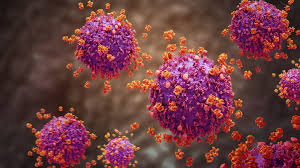Source: scitecheuropa.eu
Human immunodeficiency virus (HIV) targets the immune system. If left untreated HIV weakens it’s hosts ability to fight infection and disease. HIV can then develop into acquired immune deficiency syndrome (AIDS).
According to the NHS: “AIDS is the name used to describe a number of potentially life-threatening infections and illnesses that happen when your immune system has been severely damaged by the HIV virus. While AIDS can’t be transmitted from one person to another, the HIV virus can.”
An estimated 36.9 million people worldwide were believed to have HIV or AIDS in 2017. Due to this prioritising HIV research is paramount. So far, the method for delivering HIV treatment is by taking tablets daily, which is expensive.
This new form of drug delivery consists of a trans dermal batch that can hundreds of tiny projections on its surface, called micro-needles. After application, the micro-needles will dissolve and leave behind nano-particles of medicine for the treatment or prevention of HIV.
Dr Marco Siccardi, of the University of Liverpool, said: “The technology being developed here is unique and could revolutionise the treatment and prevention of HIV infection. It offers the opportunity to enhance the delivery of HIV drugs, simplifying the management of anti-HIV therapies in the future. We will use state-of-the art expertise, including high power computational models to design and predict the behaviour of the MAPs, speeding up product design and informing laboratory experiments.”
Professor Andrew Owen, as with the other researchers from the University of Liverpool, is from the Department of Molecular and Clinical Pharmacology.
Professor Owen said: “Recent global long-acting developments hold the promise to change the paradigm for chronic disease therapy. We continue to try and harness technological advances to improve patient outcomes, while balancing innovation with the need for wide availability across the globe. This project cuts across three of the priority research areas for the University of Liverpool and is nested within a growing portfolio of local activity in long-acting drug delivery”.
From the University of Liverpool’s Department of Chemistry, Professor Steve Rannard, said: “This new programme with Queen’s University Belfast is a further extension of the Nanomedicine activities at Liverpool that started in 2009. Our collaborations include Africa, Europe, UK and the US and teaming up with Prof Ryan Donnelly in Belfast is an excellent opportunity to develop our research into new administration routes which may have future ramifications outside of HIV”.
